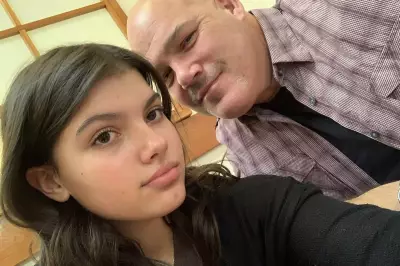
In a stark conclusion to a legal saga spanning over three decades, British expatriate Charles Crawford has been executed by lethal injection in Mississippi for the brutal 1992 murders of two neighbours.
A Night of Violence in Jackson
The 53-year-old convict, who spent most of his life in the United States after moving from Britain as a child, was pronounced dead at 6:25 pm local time at the Mississippi State Penitentiary in Parchman. Crawford's final moments came after the US Supreme Court rejected his last-minute appeal, ending years of legal challenges.
The crimes that ultimately led to Crawford's execution occurred on March 19, 1992, when the then-22-year-old broke into the Jackson home of his neighbours, 42-year-old Kristy Ray and her 12-year-old son, Orrey. In a shocking act of violence, Crawford stabbed both victims multiple times before stealing their car and fleeing the scene.
Decades of Legal Battles
Crawford's path to the execution chamber was marked by numerous appeals and international attention. Despite his British citizenship, born in Middlesbrough before relocating to Mississippi as a child, Crawford received limited consular assistance initially due to his failure to disclose his nationality to authorities.
"This case highlights the complex intersection of international law and state justice systems," noted legal experts familiar with the proceedings.
Final Hours and Last Words
In his final statement, Crawford expressed remorse for his actions, telling the victims' family: "I hope you find peace. I am sorry for what I did. I wish I could take it back." He declined a special last meal, instead receiving the same dinner as other inmates on death row.
The execution proceeded without technical complications, unlike several recent cases that have raised concerns about lethal injection protocols. Mississippi Department of Corrections officials confirmed the process followed established procedures.
International Implications
This case represents one of the few instances where a British national has faced capital punishment in the United States in recent years. The Foreign Office confirmed they had provided consular assistance to Crawford and had raised concerns with US authorities about his case, though they respect the independence of the US judicial system.
The victims' family, who witnessed the execution, expressed relief that justice had finally been served after 32 years of waiting. "No punishment could ever truly compensate for the loss of Kristy and Orrey," a family representative stated, "but today brings a measure of closure."
Crawford becomes the second person executed in Mississippi this year, reigniting debates about capital punishment both in the state and internationally.





